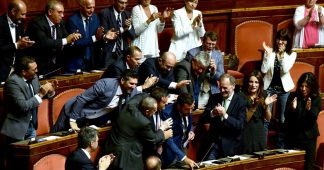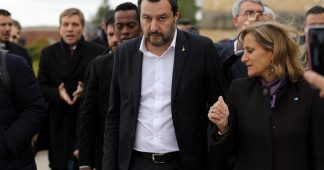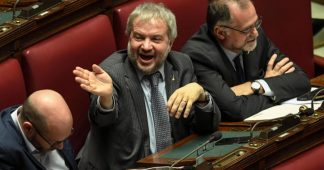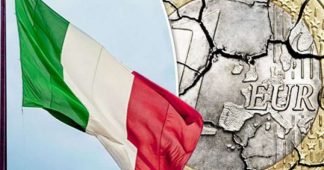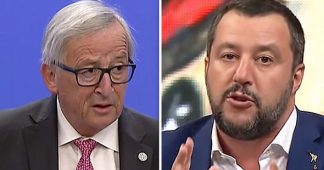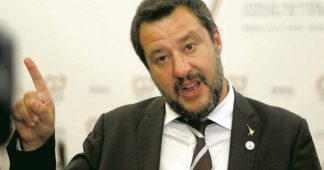European League: Matteo Salvini’s switch to Team EU
With recovery fund billions to be spent, suddenly Brussels doesn’t seem so bad to Italian populist leader
By Hannah Roberts
February 12, 2021
ROME — Last spring, with Europe’s governments at a stalemate over measures to help the most pandemic-ravaged countries, Matteo Salvini denounced the European Union as “a den of snakes and jackals.”
Less than a year on, the leader of Italy’s right-wing League has promised the populist party’s support for a new government to be led by one of EU’s staunchest defenders, former European Central Bank President Mario Draghi.
Draghi agreed to try to form a government of national unity to steer the country out of the pandemic, after the ruling center-left coalition collapsed.
Over the years, Salvini has sounded like a committed Euroskeptic, blasting EU fiscal rules, taking aim at Brussels, flirting with leaving the euro and railing against migrants. He fronted the League’s 2019 European election campaign with a slogan starting “Stop Bankers, Stop Bureaucrats. Stop Do-Gooders, Stop Boats.”
He once called Draghi “an accomplice” in the “massacre” of Italy’s economy, for having saved the euro.
But this week, in a glaring U-turn, Salvini affirmed his willingness to support Draghi and his plans for greater European integration.
“Right, left, Europhile or nationalist are just labels,” Salvini told Italian Radio24. “I am a very pragmatic person.”
In this case, Salvini’s pragmatism is directly linked to having a say in the spending of €209 billion in grants and loans Italy expects to receive from the EU’s post-pandemic recovery fund.
“I prefer to be in the room where we decide how the money is to be spent, well or badly,” Salvini said after consultations with Draghi last week.
League officials claim the party is acting in the national interest. Jacopo Morrone, a League MP, said Salvini had taken “a courageous important decision, made out of a sense of responsibility and concern for the country’s economic difficulties.”
But the League’s sudden conversion to a pro-EU path also appears to reflect a cold political calculation.
If Draghi fails to form a government, there is a strong chance a general election would bring Salvini’s right-wing alliance to power. But stranding Italy without an effective government in the meantime, as it emerges from a pandemic responsible for the highest annual death toll since World War II, would be unpopular with many voters.
Support for the League in polls increased slightly following the decision to join Draghi in government.
Continue reading at www.politico.eu
